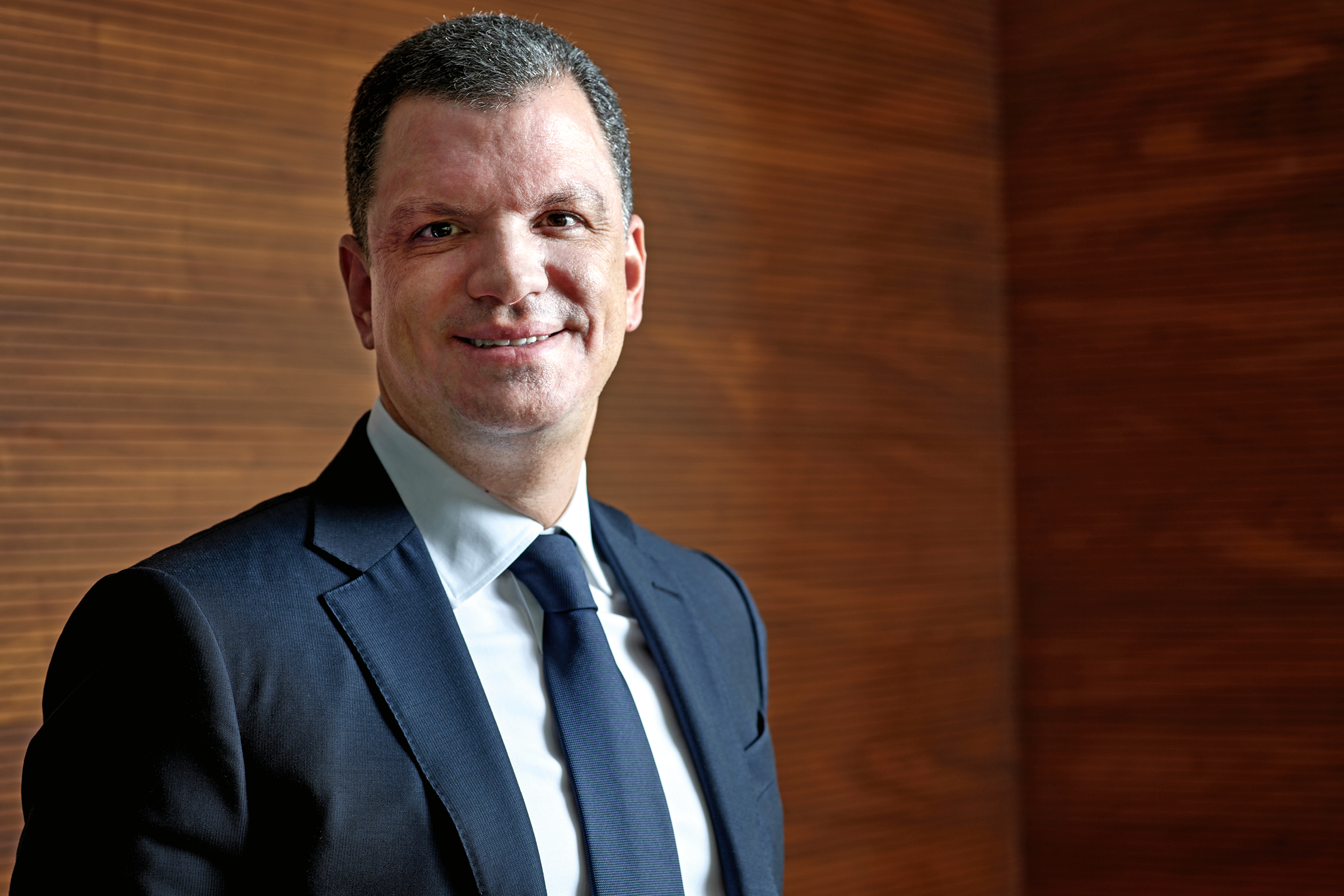Driving a digital transformation: Hisham Itani
With leading Lebanese businessman Hisham Itani in the Chairman’s role, information and communications technology company Serta is a key partner in the country’s strategy to develop the knowledge economy.
Working in the family security printing business while at university was more than a casual job for Hisham Itani. "I saw untapped opportunities for the company and began looking for ways to expand it by focusing on technologies," he tells The CEO Magazine.

Upon completion of his studies at the American University of Beirut, he was already immersed in the family business. His entrepreneurial spirit and passion for technology led him to introduce innovative solutions to the market, transforming the family business, which was established in 1973, into an institution offering digital security solutions in the Middle East and Africa.
This was made possible through heavy investment in research and development – something he considers "an essential component to enhance innovation and drive the business forward". Under his direction, the technological scope of the family brand was extended.
In 2008 this led to the establishment of Resource Group, a technology investment group and business incubator with a "portfolio of diversified businesses that capitalise on human talent and value creation", Hisham explains. He is its Chairman and CEO.
Currently, Inkript is a subsidiary of Resource Group, and operates as a digital security solutions provider, with state-of-the-art security printing facilities in Lebanon and KSA.
In 2009, another subsidiary was founded: Serta, the information and communications technology (ICT) solutions provider, which offers customers end-to-end solutions related to telecommunications infrastructure, smart platforms and defense in the Middle East and Africa.
Hisham calls early investment in research and development and "the belief in the possibilities and potentials lying ahead in digital technologies", one of the best decisions he has taken in his career so far.
This strategy brought an international client base to the business, from telecom and banking institutions to government entities. But it is the changes he has helped facilitate at home of which he is most proud.
"I have always believed in Lebanon and its potential, and this has driven me forward at both a personal and a business level," he explains.
And, while he has a track record of introducing technologies that have "ushered in a whole new era of digitisation in the country and the region", he is particularly enthusiastic about the role Serta is playing to propel the nation even further forward.
"ICT is one of the main pillars for economic development," he says. "It is part of our everyday lives, whether in education, communication, health or other sectors. It’s a means to spread knowledge and expand it. Ultimately, ICT is directly correlated to a country’s growth through infrastructure, connectivity and quality of life."
One of the projects Serta is currently involved in is the Nationwide Fiber Optics Project (FTTx), alongside the Lebanese Ministry of Telecommunications. It is the first infrastructure project of its size to be implemented in the country since 2004.
Hisham emphasises the importance of this initiative as it "directly supports the country’s strategy to develop in the direction of the knowledge economy, which is at the heart of the economic growth in the country".
The potential of high-speed internet to open up new business opportunities and grow disruptive technologies is crucial for the country’s progress.
Today, with the global spread of COVID-19, Hisham is particularly enthusiastic about the effect the technology and its supporting ICT infrastructure will have on the Lebanese medical sector, as well as the country’s global positioning.
"The healthcare industry will be optimised, especially in terms of streamlining administrative and medical data," he explains.
"Similarly, it will create a range of new investment opportunities for Lebanese businesses that will be able to compete better with companies across the world. ICT’s role is also important in Lebanon as it contributes to the development of infrastructure that enables e-government platforms and public sector’s online services," he continues.
ICT also promotes efficiency, transparency, and allows for a better citizen experience. But, he cautions, the application level of these digital technologies greatly depends on a country’s development and readiness to adopt new approaches to providing electronic public services.
"ICT, therefore, plays a pivotal role in driving digital transformation, and therefore a solid regulatory framework is key for digital services implementation, personal data protection and prosecution of cybercrime."
Looking beyond the FTTx fibre optic project, Hisham says, "We believe that Lebanon has solid potential in the ICT sector, particularly with recent developments such as the improvements in the telecommunications infrastructure and digitisation initiatives by the public and private sectors. In short, the ground is favourable – and Serta is very well placed to support Lebanon’s promising ICT sector and overall economy."